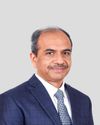
These funds mostly invest in corporate bonds, treasury bills, certificates of deposits, nonconvertible debentures, commercial papers, and so on. Investors get a return that is equal to the portfolio yield (minus the expense ratio).
Advantages of FMPs: The fund manager selects the debt instruments at the start of the tenure and holds them until maturity. Due to the buy and-hold strategy that these funds follow, investors are not exposed to interest-rate risk. Even if interest rates rise during the tenure of the FMP, the investor does not suffer a loss.
FMPs allow investors to lock into the prevailing interest rates. In an environment where interest rates are high and are likely to come down in the future, investors who put their money in an FMP can ensure that they get the benefit of the current high rates.
Since the fund manager does not buy and sell securities during the tenure of the FMP, costs get minimised.
FMPs are also more tax-efficient than fixed deposits. An investor in the highest tax bracket has to pay tax at the rate of 30 per cent plus in a fixed deposit. On the other hand, an investor in an FMP, who has invested for more than three years, has to pay tax at the rate of 20 per cent. He also gets the benefit of indexation. A lower tax rate helps to boost the post-tax return from an FMP.
Disadvantages of FMPs: On the flip side, investors can only invest in an FMP during a new fund offer (NFO). Once this period ends, the fund is closed to any further investment.
This story is from the {{IssueName}} edition of {{MagazineName}}.
Start your 7-day Magzter GOLD free trial to access thousands of curated premium stories, and 9,000+ magazines and newspapers.
Already a subscriber ? Sign In
This story is from the {{IssueName}} edition of {{MagazineName}}.
Start your 7-day Magzter GOLD free trial to access thousands of curated premium stories, and 9,000+ magazines and newspapers.
Already a subscriber? Sign In

ASK THE EXPERT
Ques. One of my friends told me that your company provides detailed Retirement plans. I want to know what is the procedure to get my Retirement plan. I will be retiring in March 2025. R.P Gupta, Noida

How to Naturally Reverse Fatty Liver Disease
The liver, located on the upper-right side of the abdomen, is the body’s largest internal organ and plays a critical role in detoxifying the blood and processing nutrients.

Banking sector which has underperformed in the last two years, now offers a favorable risk-reward profile
Do you think the market is overpriced? Is yes, should investors refrain from investing in index schemes at the current valuation?

India will continue to enjoy benefits of a close US relationship and trade will continue to grow
Q1. The US elections are said to be one of the closest till date, what impact will the election of a Republican / Democratic party have on the US economy and how is that going to affect India in the short as well as the long term?

Understanding Momentum Funds
Momentum funds are a type of investment fund that focuses on companies experiencing positive momentum in factors such as earnings, revenue, and stock price movement.

Risks and opportunities associated with Small Caps
Small-caps are a stock-picker’s paradise.

How to navigate your portfolio through bull market a
Indian equities have been in a bull run for the past four years.

Choosing mutual fund schemes depending on your age to achieve life goals
The choice of mutual fund (MF) scheme might be influenced by one’s risk profile or age.

Thematic Fund Or Sectoral Fund, Which Fund Suits You?
A thematic fund is a type of mutual fund that focuses on investing in companies based on specific themes or trends.

Be Kind To Your Kidneys
The kidney is a vital organ in our body which is four inches long and two and a half inches in width.